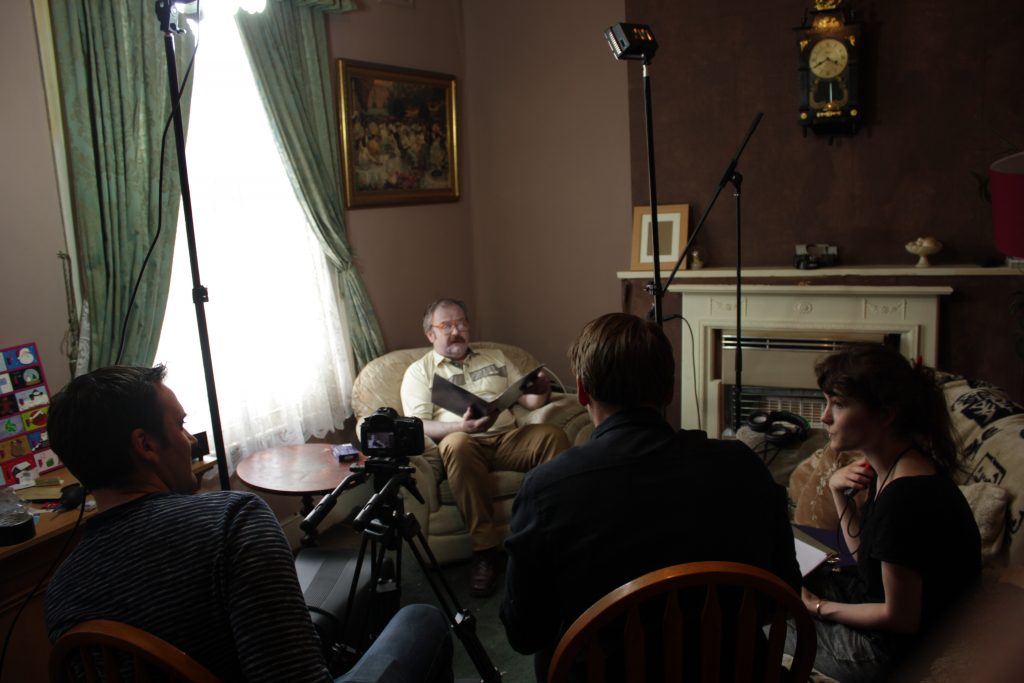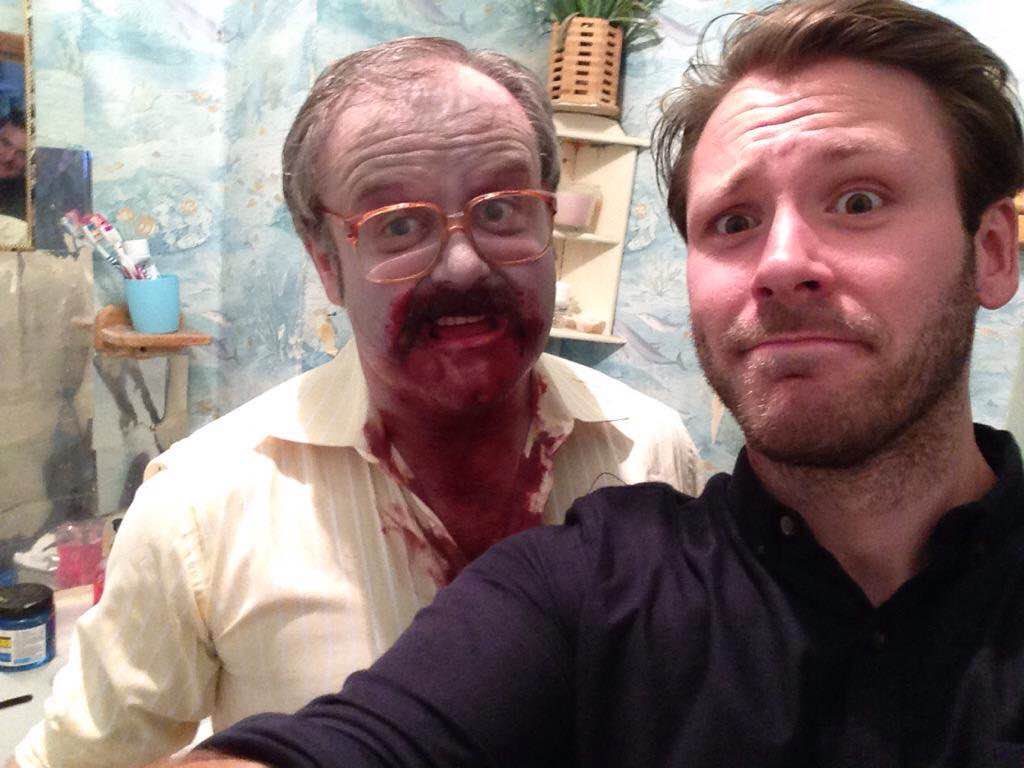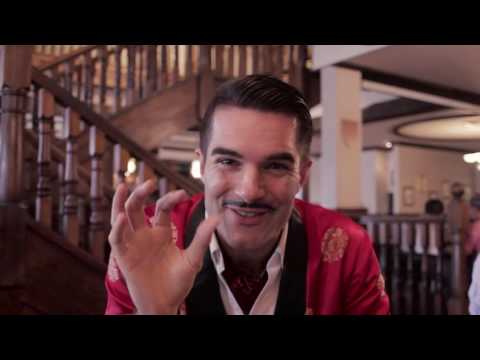Advice on following your dreams, especially those about stand-up comedy
By Martin Jordan
I have been an amateur stand up comedian on and off for just over a year. Or nine years if you count the time between my first and second gig because that’s how long it took to overcome my first gig at the London Comedy Store’s king kong.
Yes, I am now fully aware that is not a smart place to do your first ever gig. You may be thinking ‘why would I want to hear from someone so inexperienced’. Well cast your mind back to when you lost your virginity and told anyone who would listen about how much of an expert you were in the sack / back seat of your parent’s car. This is your karma. Also, the process is still fresh in my mind. When I hear Chris Rock explain his first gigs I feel that he is so far removed that he has romanticised it. And also, he’s Chris Rock. I can’t relate to someone that funny.
Audiences are different
If you are anything like me, you have listened to hundreds of interviews with comedians and you will have heard them tell stories of how they bombed in a room using the exact same routine that destroyed the night before. Well it really happens and it’s so confusing it will make you question if comedy is even a real concept.
But what I didn’t extrapolate from these stories is it may work in reverse; so the first time you try a joke out it might not work but it might be a hit in another room. I had this one joke, I was so sure it would work that I put it as my opener two sets in a row and it tanked both times. I hate giving away my jokes for free, but you guys seem ok. It was this:
‘Me and my wife were having sex the other day and she really got into it. She wanted to experiment. She said ‘what can I do that the girls in your porn videos do’. I said, um…. ‘have an orgasm?”
It was heart-breaking when it tanked because jokes become personal to you, even when they’re silly and impersonal. So having to kill one hurts. I decided to try one more time but moved it from the beginning to the middle of the set and to my relief it got a decent laugh.
Everyone is different but I can’t help but take it slightly personally when a set doesn’t go well, but it hurts less reminding myself that audiences are different. Knowing that the greats went through the same thing. Feeling that pain and turning it into determination makes you feel part of the gang. It makes you feel you’re made of the same thing as your heroes. It’s a good feeling so don’t be afraid of it happening, and when it does; don’t hide from it, feel it and learn from it.
Do not rely on support
This is not to say you won’t get support. I have had plenty. Some of my friends have even offered their services as groupies. But it is more to let you know that your dream is yours alone. Nobody is as invested as you. This is important to clarify because you need strength to do this. There’s no teacher to tell you off or manager to fire you if you decide to flake. You need to find and maintain the strength yourself. If you get support on top of that, fantastic, but you should not rely on it.
It’s like when you order a Chinese takeaway. You may get free prawn crackers, but if you set your heart on it and all they bring you is your rubbish order, you’ll end up ruining a perfectly good Chow Mein with the ghost of unfulfilled expectations.
Also, not everyone you expect to support you will. I have seemingly lost a couple of good friends purely because I am pursuing comedy. I am working on the assumption that this will pass with time, but I can’t guarantee that. They went from warm hearted close friends I could always rely on to bitter and distant overnight. Like the opposite of scrooge. Like if you watched ‘A Christmas Carol’ upside down or in a different time zone or something. I’m not 100% sure on the science of reversing a character arc but you get the point.
It is a real shame, but let’s be very clear; friends that don’t support your biggest dreams are not your real friends, and dreams come with sacrifice.
You will change
I fit a lot of comedian stereotypes. I am an introverted, socially awkward, over thinking, straight white male. After my first few gigs went well, something in me changed. While my sexuality, race and gender remained largely unchanged, other aspects of me did not. I felt a lot more calm and as a result I became more confident in social situations and I worried less about how I was being interpreted.
This may all sound positive, but I can’t help but feel it was these qualities that drove me to comedy and that losing them maybe made me lose some motivation.
Of course these qualities never actually left, they just appeared to improve for a while, kind of like racism when Obama was president. But some part of me had changed forever. There is a scene in ‘The Wire’, where young Michael kills his first person and Chris says to him ‘anybody, no matter who he is, you can look them in the eye now’. That’s how I felt after the first gig. Philosophically that’s how I felt, I’d never actually make eye contact with someone until I’ve seen them naked over for over an hour. That is in accumulated time not one hour continuously, I’m not crazy. Anyway, I have definitely emerged changed.
I feel better in many ways, but maybe my art will suffer. Maybe my relationships will. Who knows. But like I said, dreams require sacrifice and if you really want this to work you need to commit and not turn back.
It does get easier
The first couple of gigs I did drained the life out of me due to the mental energy it took to write and rehearse and the emotional energy it took to go through with it. When you have a regular job and a wife and young child at home it can be hard to justify using up all this energy on a hobby that only really benefits yourself. I suppose the hope is that the audience also benefits, but if I’m honest with myself, they could probably live without the knowledge that my wife doesn’t have orgasms. The good news is, it starts to take up less and less energy the more you do it.
There was a glorious moment that happened during one of my earlier shows where I suddenly felt that I didn’t care if it went well. I felt comfortable with the possibility that I might bomb. Which led me to say out loud ‘I don’t care if I bomb’, which was out of context, not funny, but true at least. Ever since then the whole process became easier. I do not stress about rehearsing so much or having fully formed ideas. I spend less energy convincing myself to do it and therefore can do more and more shows without worrying about burning out.
Everybody is different of course, to some it’s effortless and to some it will never be easy. But I would say if after a few shows you still feel that you can’t conjure up the energy needed, just push yourself a little further, and you’ll find it takes up less and less.
Trust your instincts
If you think you’re funny enough to be a stand up. You need to keep that confidence. There will be people that just don’t get you because they aren’t your audience or don’t understand what you’re getting at when you explain a stripped down version of your joke. That doesn’t mean it’s bad. Maybe you just didn’t explain it well enough or that particular individual didn’t get where it was going. Some people need a whole sandwich while some of us are happy just eating pure cheese.
I’ve been told a joke is bad and then performed it onstage and it’s worked. In fact, I recorded my first 5 minute set the day before my first real performance for a friend to give me advice. His response was ‘It’s funny but not laugh out loud funny’. That’s not even advice. That’s like asking for sex tips and someone saying you’ve got a small dick. Imagine if I was weak in that moment and took that to heart. I might never have stepped on stage. That exact unchanged set went really well. I trusted that it was funny and that my friend was being fooled by the out of context nature of the recording.
I’m not saying ignore all advice but you’re the one up there risking it all. Also, the uncomfortable truth is; the second you get down from your first gig, you know more than someone that has never done it. That’s not a reason to feel superior, but it’s a reason to trust yourself.
You set the terms
The first real gig I did I told nearly nobody about and went on my own. I kept this pattern up for a few gigs. Some of my friends were offended I didn’t invite them. But I would not have been able to go through with it had they been there. It was removing some accountability and it was key to me. This caused an internal fight as I didn’t want to upset my friends but also wanted to make sure I didn’t create a situation that would make me uncomfortable. It’s me that’s taking all the risks and it is far too easy to talk yourself out of it, so removing all possible excuses is important. I was trying to create the best possible scenario to help me succeed.
I would say don’t feel obliged to do it any which way. It’s your choice. Do not risk the success of your dream to appease somebody else. If they are good friends, they will understand. Don’t go in any direction your uncomfortable with. As stated before, the whole process is driven by your own strength, exposing yourself could hurt you and your dream, all to appease people that should support you regardless.
Follow Martin Jordan following his stand up comedy dreams @notreallyLTD on Twitter and Instagram



 I know I am preaching to the converted here on The Comedy Crowd but the effort of making a trailer is well worth it. With so much competition you have to find a way to find your crowd and stand out, a trailer – less than 90 secs- will make a difference. Even 15 secs of you smiling and talking to the camera with one joke will help. In 2016 there were 2,475,143 tickets sold through the box office, that does not include the free fringe and non-ticketed shows. The audience want to find a reason to come see your show.
I know I am preaching to the converted here on The Comedy Crowd but the effort of making a trailer is well worth it. With so much competition you have to find a way to find your crowd and stand out, a trailer – less than 90 secs- will make a difference. Even 15 secs of you smiling and talking to the camera with one joke will help. In 2016 there were 2,475,143 tickets sold through the box office, that does not include the free fringe and non-ticketed shows. The audience want to find a reason to come see your show. I am an actress and cabaret artiste who has done shows from Edinburgh, Montreal, Prague and Brighton fringes and London’s West End. As a straight actress I have been in many films, some such as the multi award-winning Sunday Dinner With The Morgans, were screened in over 30 festivals worldwide and reached the semi-final nominations round for an Academy Award in 2015. I am the yummy mummy in The Vamps ‘Shall We Dance” hit video.
I am an actress and cabaret artiste who has done shows from Edinburgh, Montreal, Prague and Brighton fringes and London’s West End. As a straight actress I have been in many films, some such as the multi award-winning Sunday Dinner With The Morgans, were screened in over 30 festivals worldwide and reached the semi-final nominations round for an Academy Award in 2015. I am the yummy mummy in The Vamps ‘Shall We Dance” hit video. My new version THE SINGING PSYCHIC GAME SHOW is monthly at The Phoenix Artist Club in Soho, London. Plus I performed at Vault Festival in Feb 2017.
My new version THE SINGING PSYCHIC GAME SHOW is monthly at The Phoenix Artist Club in Soho, London. Plus I performed at Vault Festival in Feb 2017.


